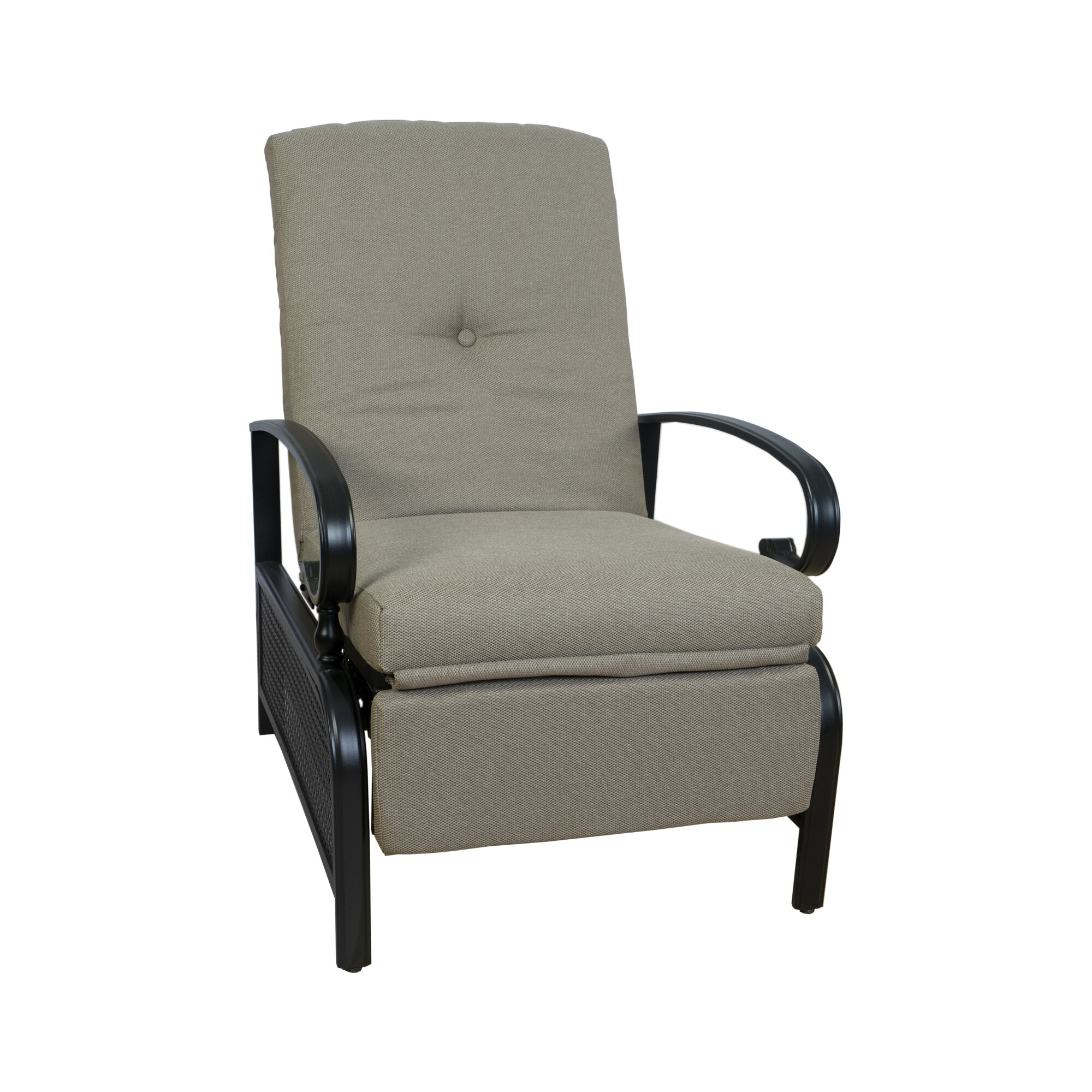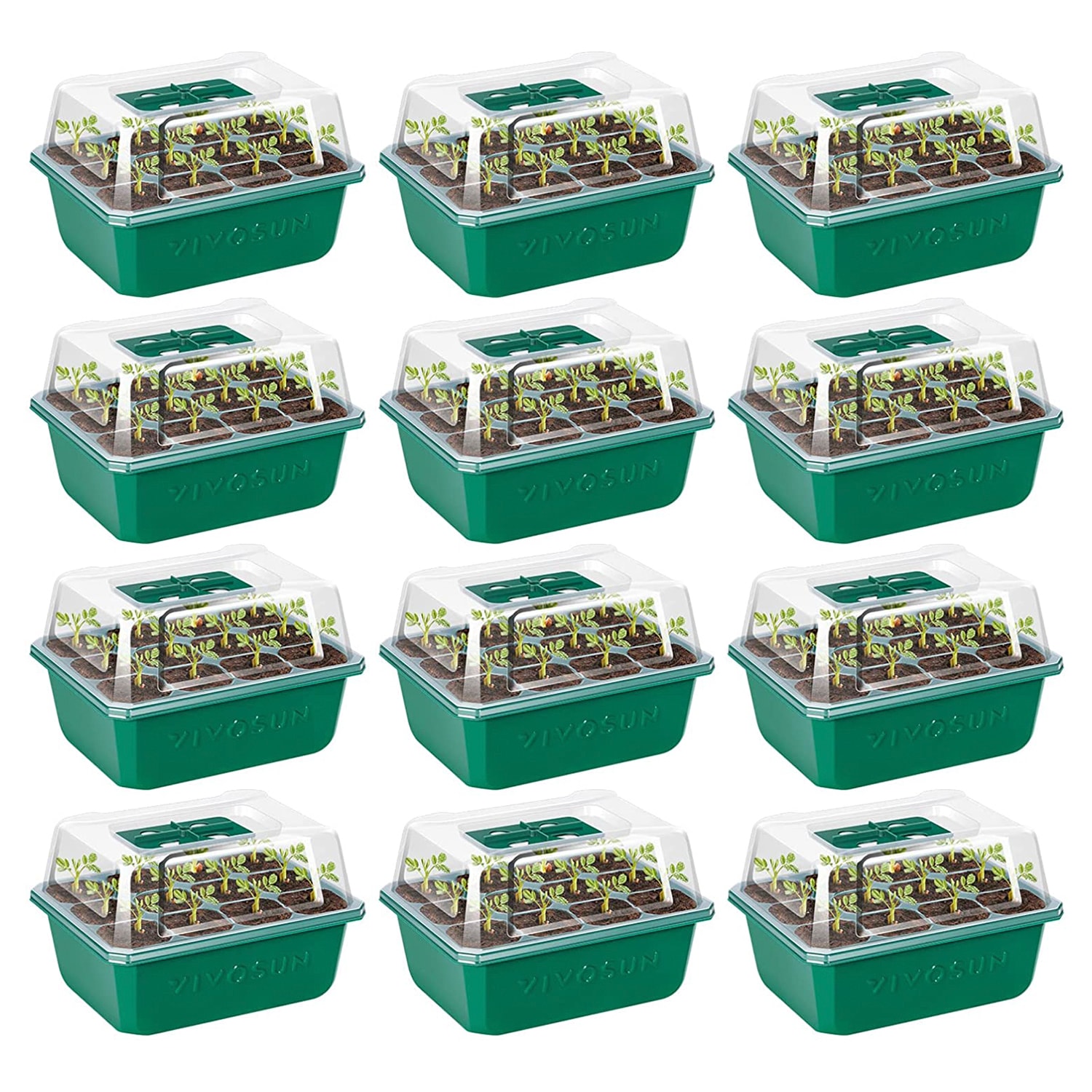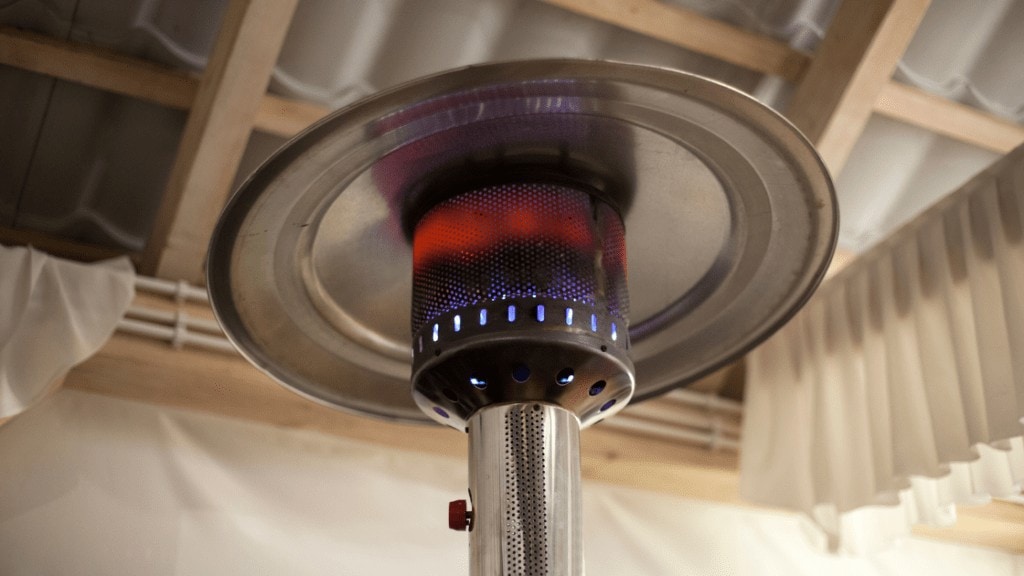
An outdoor heater can be an important addition to any patio – it can be the deciding factor of whether or not your patio is usable during the colder months, which in many climates can be more than half of the year. Even during the spring and autumn, patios can be uncomfortably cold during the early morning, evening and night.
Fortunately, adding a heater is relatively easy and inexpensive. Both gas and electric heaters can be used, with gas usually being cheaper, but less environmentally friendly. In this article, we’ll further explore the differences between the two systems and will help you decide which one is right for you. Let’s get started!
Is There A Difference Between Outdoor and Indoor Heaters?
Before going into the differences between gas and electric patio heaters, let’s take a look at what makes outdoor heaters different in general.
Browse our Affiliate Products
There is one very significant difference between outdoor and indoor heaters – most indoor heaters are convective, while outdoor heaters are always radiant. A room is well sealed and doesn’t allow the hot air to easily escape.
This means that we can easily increase the temperature of the whole room by directly heating the air in it. This is usually accomplished by large, convective space heaters, or smaller heaters that have a circulating fan.
In an outdoor location, this is not really possible – the heated air will rise up and get lost in the atmosphere.
Not only will this not provide any heating, but it will accomplish the exact opposite – the rising stream of air creates a cold draft moving towards the heater. This is why radiant heaters are used instead.
If you would like to go a completely different route, we have a outdoor firepit article that you might find interesting. Outdoorgardenaccessories.com/Are Fire Pits a Good Idea for Your Outdoor Space/
How Do Outdoor Radiant Heaters Work?
As we already explained, virtually all outdoor heaters are of the radiant type. Unlike convection heaters which have a large area that is heated slightly above the ambient temperature (usually to less than 210F/100C), radiant heaters have a small heating element that is usually heated to glowing red temperatures – higher than 1000F (550C).
This causes the heated element to emit infrared radiation which directly heats all nearby objects, including people, clothing and furniture. This is the same phenomenon by which a burning fire emits radiant heat, which is obviously the reason why many outdoor heaters directly burn gas instead of consuming electricity.
Differences Between Gas and Electric Outdoor Patio Heaters and The Pros and Cons of Each
In this section, we’ll go into more detail on the specific differences between gas and electric outdoor patio heaters. Obviously, gas heaters require you to purchase and/or refill gas bottles, while electric heaters just consume electricity.
However, there are many more differences and factors to consider, and doing so will quickly help you decide which type of heater is right for you.
Installation
Depending on your specific situation, one type of heater can be much easier to install than the other. If you don’t have a suitable source of electricity near your patio, the installation of long electric lines can be a hassle that can be easily avoided by using a gas heater instead.
And conversely, if your patio already has thick, 12 gauge electric wiring running to it and you don’t have easy access to gas bottles, purchasing an electric heater can be a much easier option. The installation process of the heater is very similar and both types are relatively easy to install.
Small, electric heaters of the box type which don’t come with a stand may require a bit more consideration as to where you will mount them and often require some drilling. They can also be hanged from the ceiling.
Initial Investment – The Cost of The Heater
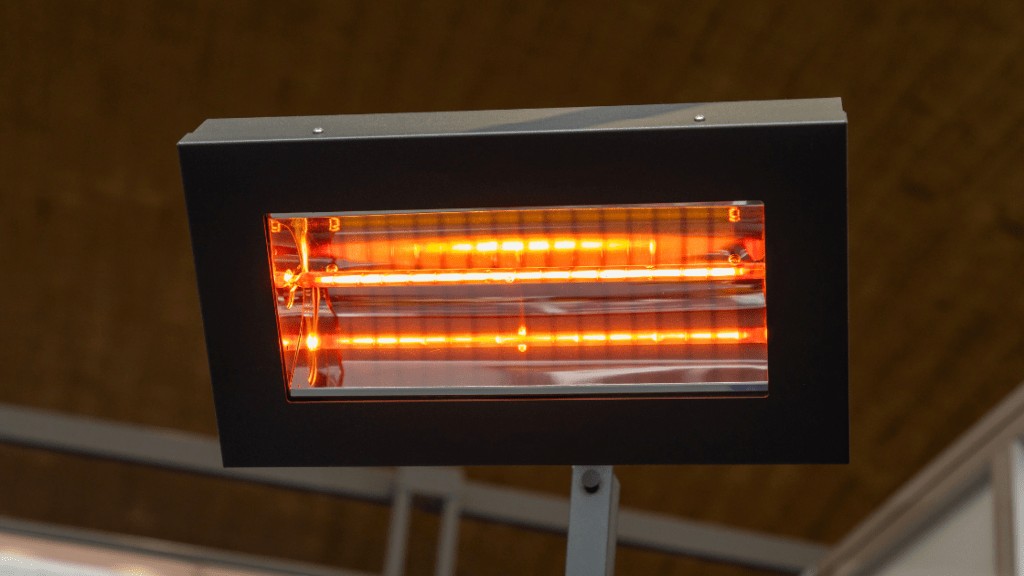
Electric outdoor heaters have a similar price tag to gas heaters and both start at around $200.
Amazon provides excellent choices in electric patio heaters as shown below.
Also, check out our affiliate patio heater here: Patio Heaters
Electric heaters can be much more compact and often resemble a long rectangular box which can be mounted on a stand or directly on the wall/corner of the patio.
Gas heaters on the other hand are always of the tower type and are placed in the center of the heated area. For more comfort and better heat distribution, multiple electric heaters on different sides of the patio are commonly used, but this is not a requirement.
Energy Savings – Which One Costs Less to Operate
Gas heaters are usually cheaper to operate for the same subjective feeling of warmth and comfort.
Depending on the arrangement and size of your patio, the operating cost of a gas heater can be up to 3 times lower than that of an electric heater. However, it’s important to consider the labor and time cost of replacing/filling your gas bottles or the hassle of installing a permanent gas line.
Ultimately, the significance of energy savings should be weighed against how much you will use your heater. If you use your patio only for the occasional family gathering during the weekend, the amount of money you’ll eventually save by choosing a gas heater is not really that significant.
However, if you spend a lot of time in the patio daily, the higher cost of electricity may definitely be something to consider.
Cost to Run Analysis
To calculate how much an outdoor heater will cost to run, it’s best to find out the electricity and gas prices in your area and do some multiplication.
Electric
A 2,000 watt electric unit, running for 5 hours each day for a month will consume 2 x 5 x 31 = 310 kW/h, which will ultimately cost you $43 given an electricity price of 13 cents per kWh.
So the equation is (Watts x hours x days of month = kW/h) to calculate usage and cost per month at going rate of electricity.
Gas
As to gas heaters, a 48,000 BTU unit will cost around $0.64 to run for an hour, but will supply around 7 times more heat (48,000 BTU = 14,076 kW).
Ease of Use
Once installed, both gas and electric heaters are easy to operate. Gas heaters usually have an ignition button, which does require some getting used to, but is easy to get the hang of.
Gas heaters may require some tweaking in order to achieve the best fuel/air ratio. If this ratio is not optimal, the heater may become noisy and inefficient. The flame may become more yellow and give off more unwanted gases.
Environmental Impact
At first glance, it may seem like electricity is an infinitely cleaner option when compared to burning gas – after all, it doesn’t produce any carbon dioxide and there are no emissions whatsoever.
However, things get a bit more complex when you consider that the electricity your heater consumes is most likely generated from the burning of fossil fuels anyway. Around one third of all electricity in the US is generated by the use of natural gas and another third by burning coal.
This means that 2/3 of all electric power is generated by the same burning process, which occurs in a gas heater. When you consider the inefficiencies of converting the gas energy into electricity, transporting that electricity to your home and then turning it back into heat
A good argument can be made that gas heaters don’t really have an added environmental impact. However, the flip side of the coin is that the power plant will burn gas regardless of whether you turn your electric heater or not.
Ultimately, electric power may be considered cleaner, because up to 1/3rd of the electricity in the power grid is still generated by using relatively clean sources – nuclear energy, solar and wind.
Safety
Gas heaters may seem like much more of a safety risk compared to electric ones, but that is not really the case.
Most gas heaters have many built-in safety mechanisms, including automatic stoppage of the gas supply if the unit is tilted.
Electric radiant heaters also reach similar temperatures and are just as capable of causing a fire, given extraordinarily unlikely circumstances, like a burning material entering the unit, catching fire and then being carried away by the wind.
Ultimately, both types of heaters are very safe to operate and use.
Area Size
Because gas-powered heaters are not limited by electric power consumption, they can be very powerful and can cover a large area.
While the practical limit for an electric heater is around 2,000 watts, a gas heater can easily supply 48,000 BTU/h of energy, corresponding to around 14 thousand watts.
Of course, the outdoor temperature of your location is just as important as the square footage. If the outdoor temperature is around 50F and you’re willing to put on some warm clothes, even a very low power heater can provide enough radiant heat to keep you comfortable.
As a general rule, a 15-kilowatt (48000 BTU) gas heater will be able to cover an area of around 25 square feet, but this rule generally applies to a cold weather.
Propane vs. Natural Gas Heaters
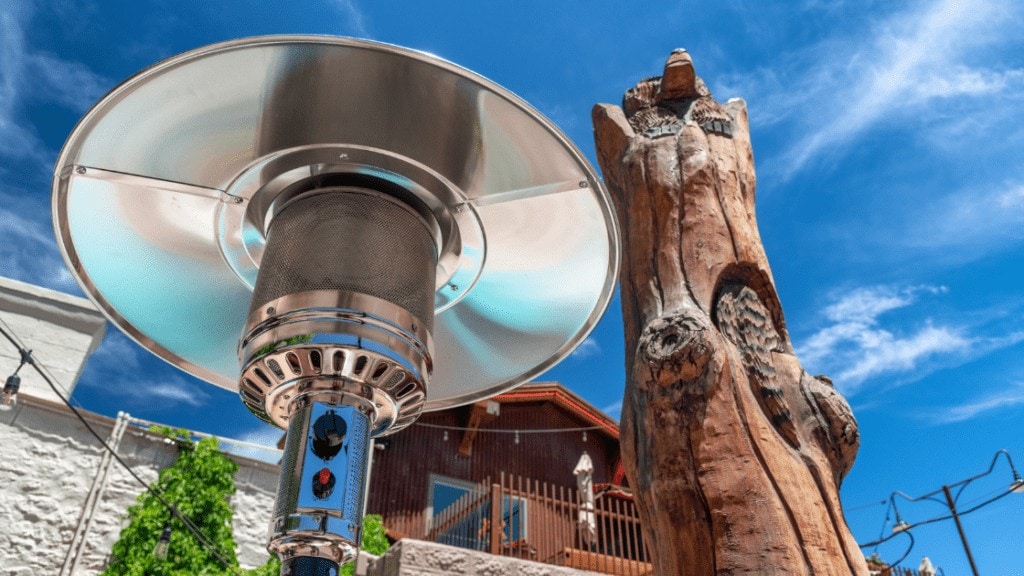
Gas patio heaters can use both propane and natural gas. Natural gas is usually used only if you have a permanent gas line installed.
Propane is almost two times more energy dense, but requires changing and/or refilling bottles.
If installing a permanent gas line is a viable option in your area and you spend a lot of time in your patio, natural gas may be a great option for you. This is particularly true if you have a large patio that is difficult to heat with electricity.
As we already explained, the upper power limit of gas heaters can be almost 10 times higher than that of electric heaters and with a permanent gas line, you don’t have to worry about replacing or refilling your propane bottles.
So, What’s The Verdict, Are Electric or Gas Heaters Better For An Outdoor Patio?
In conclusion, let’s try to do a short summary and consider in which cases a gas heater is a better option compared to an electric heater:
First, consider your individual circumstances and whether you have an easy and inexpensive access to gas, whether in the form of a permanent natural gas line or bottles.
Does your patio have electric wiring, suitable for high-power appliances?
Next, consider how much time you spend in the patio and whether the energy-saving aspect of different fuels should be taken into account.
And finally, consider the area of your patio and the fact that electric heaters are limited to around 2,000 watts, while gas heaters can easily supply as much as 15,000 watts.
Once those main considerations are taken into account, you can start looking at less significant factors, like the designs of different heaters, the ease of use and the price differences between different models.
